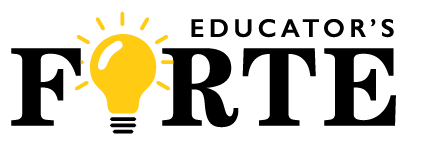As we navigate the ever-evolving landscape of education, the importance of dynamic and continuous professional growth cannot be overstated. However, the challenge often lies in transforming professional development sessions from mere formalities into vibrant, engaging, and truly beneficial experiences. This article aims to address the challenge head-on by presenting three innovative learning activities specifically designed for in-person professional development. Each activity is crafted to stimulate creativity, foster meaningful collaboration, and enhance the understanding of essential educational concepts. Through these activities, we seek to not only enrich the professional development experience but also to directly influence and improve educational practices. Whether you are in the process of organizing a professional development session or advocating for more impactful activities in your professional learning community, this exploration is tailored for you.

Get Up and Do a Gallery Walk
Beyond merely enhancing engagement through movement, gallery walks actively foster reflection, collaboration, active learning, diversity, and innovation in the educational community. These walks encourage teachers to dive into and interact with the displayed materials, shifting from passive listeners to active participants in the learning process. This shift not only deepens understanding and retention but also turns the spotlight on the varied talents, experiences, and viewpoints of educators. By showcasing each teacher’s unique contributions, gallery walks celebrate diversity and nurture an inclusive culture within the professional development community. Exposure to new ideas, methods, and approaches during these walks sparks innovation among teachers. Observing and discussing their peers’ work or notes, educators find inspiration to experiment with new strategies or tweak existing ones, aiming to better serve their students’ needs.

There is Power in Role-Playing
Role-playing scenarios dynamically and interactively enhance in-person professional development for teachers by offering opportunities for active learning, empathy building, decision-making, collaboration, feedback, and reflection. Teachers actively apply their knowledge and skills in simulated real-life situations through scenarios or case studies reflecting common classroom challenges. Encouraging teachers to focus on problem-solving and effective communication as they act out these scenarios also enables them to step into the shoes of different stakeholders, like students, parents, or colleagues, and view situations from various perspectives. This approach fosters empathy and understanding, aiding teachers in developing more effective communication and interpersonal skills. Challenging situations or dilemmas necessitate quick thinking and decision-making, and practicing these skills in a safe and supportive environment boosts teachers’ confidence and proficiency in handling similar situations in their classrooms. Finally, facilitating a debriefing session allows participants to reflect on their experiences and share strategies for real-life application.

Provide Them a Project
Organize project-based learning challenges that have educators teaming up to design and implement lessons or units around specific themes or learning objectives. Equip them with the necessary resources, guidelines, and time for planning and collaboration, and then let teams showcase their projects to the group. Foster an environment where constructive feedback and reflection on the learning process are encouraged. This type of learning opportunity might nudge educators slightly out of their comfort zones, but isn’t that precisely where the magic happens? Project-based learning challenges inherently motivate by giving teachers a sense of purpose and accomplishment. Teachers become more engaged in professional development when they actively engage in projects that hold meaning and relevance to their practice. Moreover, these activities mirror real-world scenarios educators might face in their classrooms, offering authentic learning experiences. This approach enables teachers to bridge theory with practice and underscores the significance of their professional development in their everyday teaching roles.

In wrapping up, this blog emphasizes that enhancing the professional development experience goes beyond merely making sessions more enjoyable for educators. It’s about sparking their passion for continuous learning and empowering them to implement new knowledge and skills in their classrooms. Gallery walks, role-playing, and project-based learning challenges provide dynamic and interactive methods for educators to deepen their understanding, collaborate with peers, and reflect on their teaching practices. By weaving these activities into professional development sessions, we transform them from routine tasks into inspiring opportunities for growth and innovation. As leaders in education, we should wholeheartedly embrace these engaging learning experiences, leveraging their potential to effect positive change in our teachers’ classrooms and across our school communities, thereby fostering a culture of lifelong learning and educational excellence.
Are you an instructional coach or instructional leader who needs support with professional development? Click here to get more information about what Educator’s Forte offers.
